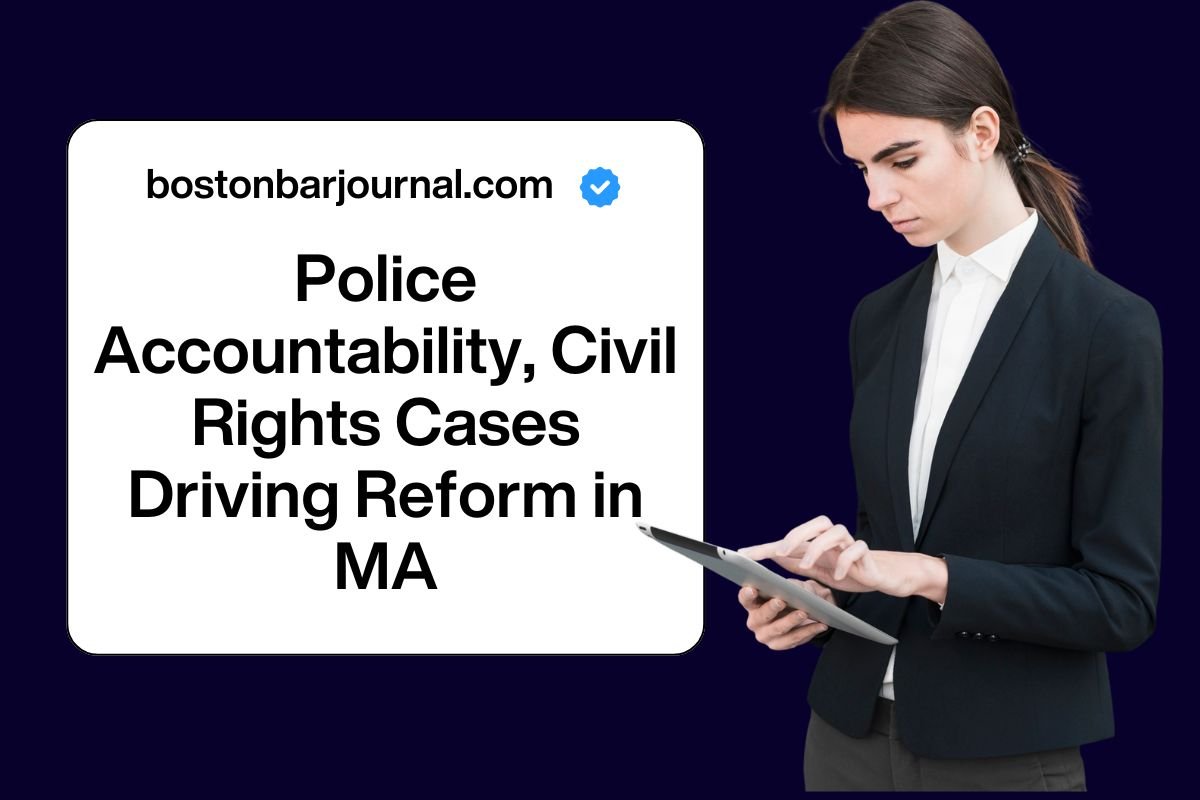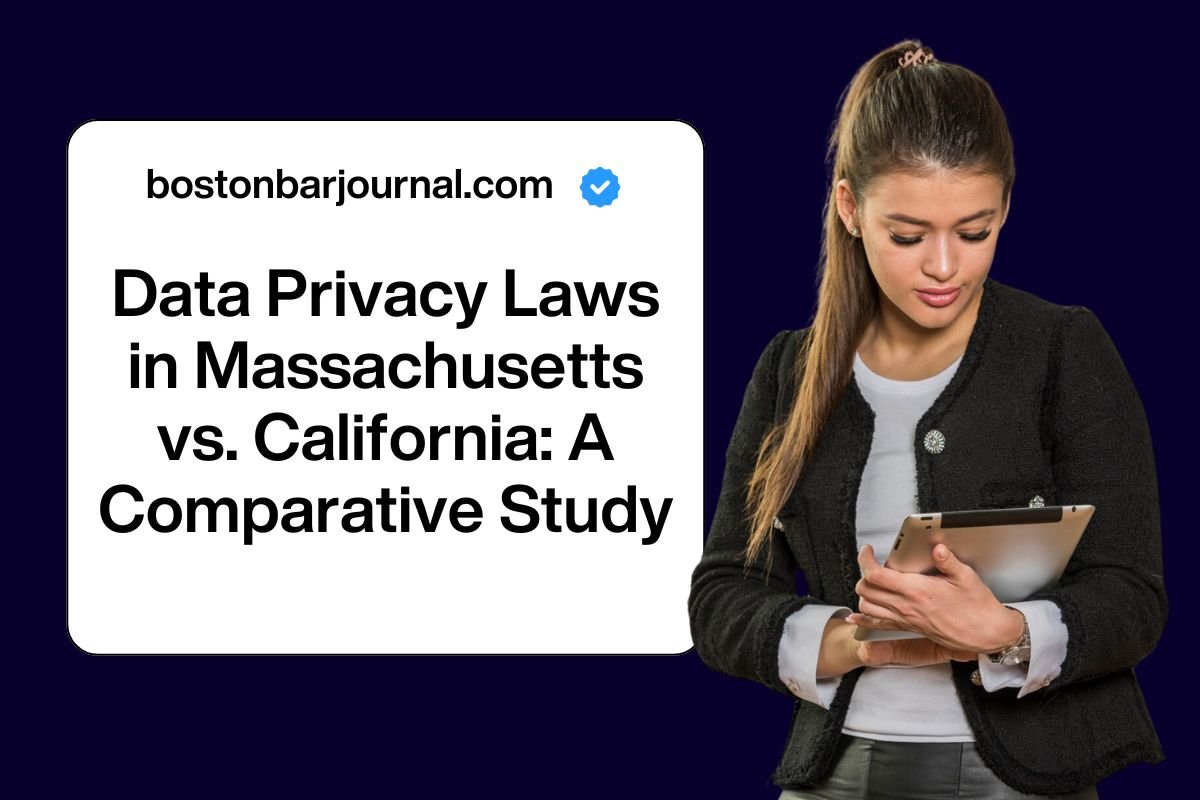Police reform is no longer an abstract conversation. It is more towards the life, communities, and real stories that have forced the nation as well as Massachusetts to think twice about how power is held accountable. Massachusetts has become a central point for police accountability and reform in these years. Civil rights across the nation have played a pivotal role in reforming the state’s policy and law enforcement.
These developments reflect the demand of the community, legal pressure, and legislative action to make a change. In this article, we will explore the civil rights that have transformed the policies in Massachusetts. We will not explore the legal analysis, but we will go through the human story by closing the gap between accountability and authority.
Let’s dive into what is happening in Massachusetts and why it is important for every resident.
Landmark Litigation: Glik v. Cunniffe and the Right to Record Police
Simon Glik was involved in one of the earliest and influential cases in Massachusetts by filming the Boston police officers and further making an arrest. Though the actions were peaceful, he was arrested with charges of wiretapping. In 2011, he sued and, under the court’s appeal, his actions were protected under the First and Fourth amendments of citizens’ right to record police in public. Later, under the settlement, the court awarded Glik $170,000.
This case altered Boston’s police training, policies, and public awareness, and now BPD clearly instructs the officials that publicly recording is permitted. Whereas all the courts in the U.S. have referred to this decision as precedent.
Federal Pattern-or-Practice Investigations: Worcester & Springfield
In recent years, high-profile investigations have focused more on systematic misconduct in various police departments in Massachusetts.
The U.S. Department of Justice announced in December 2024 that the Police Department of Worcester had been engaged in a pattern of constitutional violations, which included disproportionate force and the deployment of undercover officers who were sexually engaged with the women in the sex trade.
A similar lawsuit was filed by the U.S. Attorney’s Office and Department of Justice in Springfield revealed violations in the Narcotics Bureau. After verifying continuous abuses, the Springfield and DOJ agreed to mandate enhanced use of force, de-escalation of training, strong supervision, and a monitor to monitor the compliance. These actions determine the legal leverage to reform the law and regulations where the local structures have failed.
Civil Rights Litigation in Municipal Settings: Arlington Case
In February 2024, a civil rights suit was settled against the Police Department of Arlington on Donovan Johnson’s behalf, where a young Black man was at gunpoint in a racial profiling. The case was settled by the Lawyers for Civil Rights and a pro bono legal team.
Though the person was released without any charges, the police agreed to reform the training session to reduce profiling and improve respectful engagement. This case depicts how local litigation can influence real changes in the city and town.
Statewide Legislative Overhaul: 2020 Reform Law
In 2020, the Massachusetts Statewide Legislative Overhaul indicated a Reform Shift and Build Act, a comprehensive bill that aimed at addressing systemic racism and promoting equity. Public protest and pressure of civil rights culminated in the city passing its landmark reform bill for the enforcement of justice, equity, and accountability in law.
The key provisions included:
- Access of the public to underlying investigation records not only on outcomes but also on allegations.
- A certification system all over the state, while empowering independent decertification for any misconduct, such as false arrest, excessive force resulting in serious injury or death.
- Limitations on data usage and facial recognition.
- Exclusion of obligatory school resource officers at local discretion.
- Expansion of reporting health data, including injuries and deaths involving police.
Oversight Bodies & Decertification: Enforcement Mechanisms
A first-in-the-nation civilian-led commission was created in 2020 to decertify the officers and investigate the matters all over the state. The enforcement wave in 2022 and 2025 saw the Massachusetts Peace Officer Standards suspending certification of nearly 15 officers who are accused of serious misconduct. The structure strengthens the enforcement of local police departments and advocates for statewide standardization.
State Supreme Court & Constitutional Expansion
The courts in Massachusetts have played an important role in multiplying civil liberties. The Judicial Court has ruled the cases and ensured expanded protections, including privacy matters, youth sentencing, and equal protection under the constitution of state constitution. These decisions strengthen the state’s accountability, where reforms highlight the important role of the state judiciary.
Police Accountability: A Path Towards Sustaining Reform
Despite constant progress, accountability remains at stake. The State overlooks the bodies facing political pressure. For Massachusetts to sustain progress, it must keep the following things in mind:
- Activist groups must secure further restrictions on competent freedom.
- Legislators should ensure oversight bodies remain sovereign and well‑funded.
- Communities must stay cautious, especially where state or federal leadership retreats.
- Continued lawsuits and persuasive arguments of civil rights violations remain fundamental for implementation and reform.
Final Takeaway:
Civil rights lawsuits and activism have formed the backbone of police accountability and reform in Massachusetts. From precedent-setting court decisions to federal investigations and legislative overhaul, each case has helped build a system more responsive to civil liberties and public trust.
But reform is not guaranteed: maintaining and advancing change requires sustained legal action, transparent oversight, and grassroots vigilance. Massachusetts offers one of the strongest models of police oversight in the nation today—but its future effectiveness rests on continued advocacy and enforcement in the face of evolving challenges.







